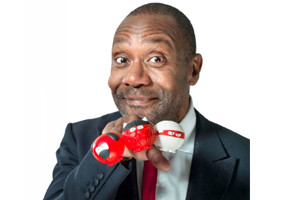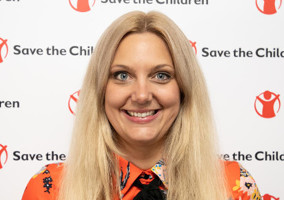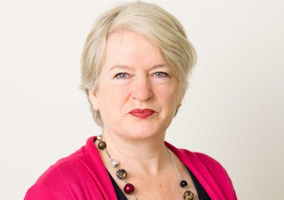Charities should be “unlearning the ways that we communicate”, according to the head of creative content and stories at Save The Children.
Ivy Lahon was speaking at an online event, Racial Representation in Communications and Fundraising, which was held by the NGOs network Bond.
The event heard about the approaches panellists' are taking in their own organisations to improve. Lahon discussed Save the Children and its recent commitment to reconstruct its storytelling.
Speakers also included Natalie Lartey, an advocate in the international development and humanitarian aid sector, and Janice Njoroge, who is the communications manager for Kenya at Amref Health Africa.
'Tell the myriad of stories which are out there'
Lahon spoke about the importance of “challenging the status quo and telling the myriad of stories which are out there, which might not fit into ideas of the communities that are outside of our own”.
She added: “I do not see that as problematic in terms of the connection with the viewer. I think you can tell a very different story – it is how you tell it.”
“Unlearning the ways that we communicate and broadening them out” is very important, she said.
Lahon added that charities must be “honest with themselves” about potential audience drops or fundraising income hits.
Testing and learning what resonates with audiences is crucial, in order to see what different content “might in turn result in a fundraising drop in donations”.
She said: “If organisations prepare to take that hit, and to resource this new way of communicating, I think we will be in a much better place to make proactive and positive steps forward.”
Yet Lartey said “with fundraising I really think there could be a sweet spot”.
She pointed out that in fundraising “a good starting point is to actually reassess who your donor is”.
She said: “If there is a place where fundraisers want to take a risk, right about now that risk could be recognising that there are donors in Britain that come from different racial groups, that you have not identified, and if you do identify them you have to create content which will engage your new donor as well as your ongoing donor.”
Once charities start creating content that is inclusive of all racial groups, and stop putting people of colour off, “you are halfway towards transforming your content”.
Lartey said: “Black people help black people get out of poverty, equally, or more so, than white people helping black people get out of poverty. And so this underlying idea that gets shared through our stories that black people are passive recipients of aid, and that is how poverty gets eradicated, is the next idea that needs to be challenged.
“There is a wealth of stories that need to be told about black people helping themselves. We need to tell stories about why we have this huge inequality in the first place.
“Rather than just look at poverty, we need to look at the global patterns of exploitation. Yes, we have moved a long way, and we tell stories with great dignity, but there are huge gaps in our storytelling,” she added.
Three key parts in transforming storytelling
Lartey outlined three key elements which are needed to transform the sector's storytelling.
“I think that if there is a drive from a number of charities, big, medium and small, to all really transform storytelling, there is definitely an opportunity to share our experiences on this journey and to come together, and think collectively,” she said.
Secondly, she said: “Having more storytelling happening in African, South Asian and Latin American countries is crucial”.
Lastly, she said having more diversity and representation within development organisations in Britain is key.
Lartey said: “If you have more black and brown people as the fundraising director or chief executive or picture editor, there will be more people saying ‘that image or idea is not appropriate’, and we need to do something differently.”
On a question about bringing partners on board in terms of ethical content, Njoroge said her charity makes it “very intentional” that as part of a partner's induction, they are taken through comms training. “We walk them through policies on safeguarding and also on ethical usage of imagery and storytelling, then we work hand in hand with them to develop the content”.
'Work with people who understand the cultural dynamics'
Njoroge also spoke about the importance of working closely with local suppliers. Given that Amref implements programmes in Africa, a lot of the content for its communications is developed there.
“It is really useful to work with people who understand the cultural dynamics of those communities,” she added.
She said this helps manage relationships with the communities Amref is working in, and it also helps “to ensure that the products we get are really authentic”.
Njoroge added that resources need to be given to communications persons within those countries, so that local expertise is being built and work is innovative.
0.7% GNI commitment to foreign aid
Over the last few days there have been some reports suggesting that the government could reduce or change its commitment to foreign aid.
Bond told Civil Society News that it has been reassured that the government remains committed to investing 0.7% of GNI to UK aid.
Stephanie Draper, chief executive of Bond, said: “We have heard strong comments from the foreign secretary over the last few days that government remains committed to investing 0.7% of GNI as UK aid, which is critical at a time Covid-19 looks set to push millions of people back into poverty.











